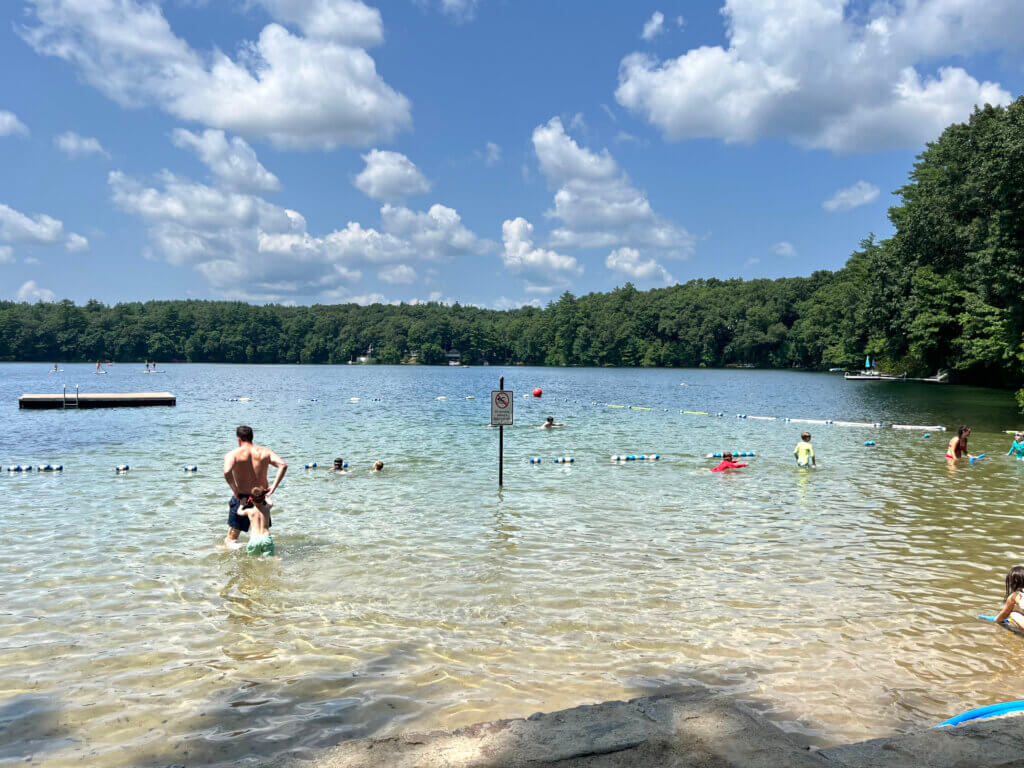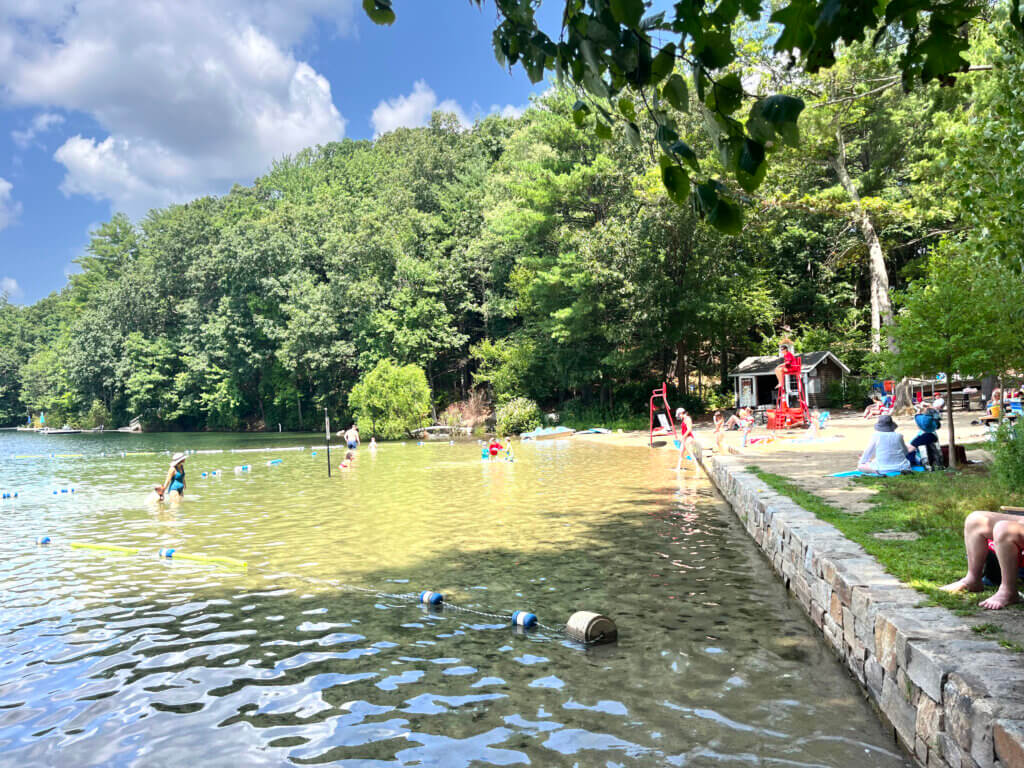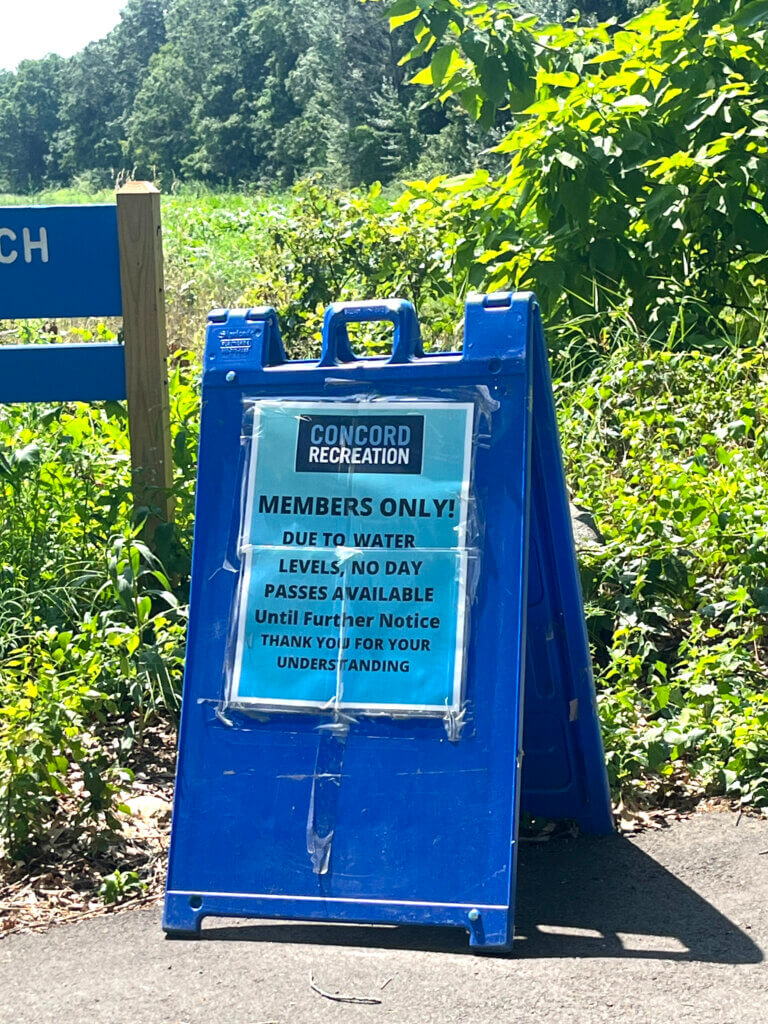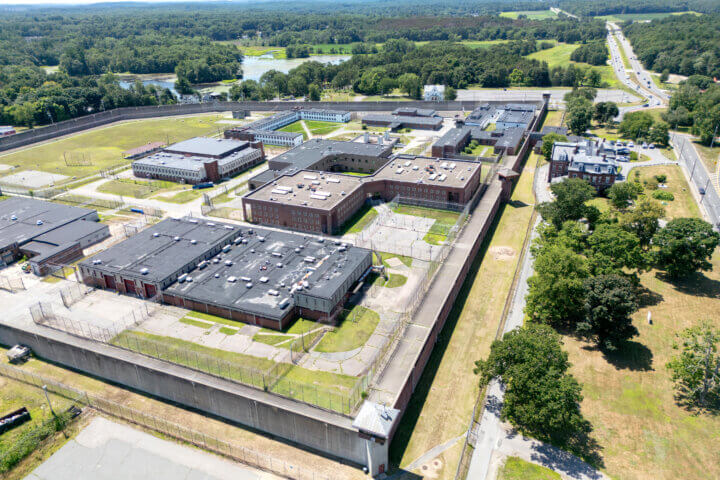By Sylvie Raymond — Correspondent
Kathi Terwilliger of Concord and Debbie Dawson of Carlisle have been coming to White Pond for decades.
“We’ve been very privileged to get to enjoy it for so long,” Dawson said during the friends’ weekday visit in July. “It’s just such a lovely place for families.”
Nestled on the southern edge of Concord, White Pond has long been a popular summer destination for swimmers, fishing buffs, and nature lovers.
But the last month of this season, which closed August 18, saw a surge in weekend visitors, leading to significant congestion — and leaving some would-be beachgoers high and dry.
“There have been some days where we will hit capacity early in the morning, at like 11, and we’ve only been open for an hour,” said Jason Lu, a lifeguard. “At that point, we have to start turning people away.”
A familiar problem
Concord Recreation Director Leigh Jackson said, in response to a Concord Bridge inquiry, that this year’s crowding complaints aren’t unprecedented.
However, she said in an email, “I do think that it is likely that we saw new interest in White Pond [this season] since each weekend, Massachusetts saw significant beach closures throughout the state due to bacteria.”
Walden Pond, notably, was among those beaches in 2024; Thoreau’s muse also saw its beachfront shrink, dramatically reducing its capacity.
“Both Walden Pond and White Pond had smaller beach areas this year due to high water levels,” Jackson said. “The water is slowly draining, so we hope for a bigger beach area next season.”

Filled to the brim
Concord Rec emailed White Pond members on July 19 in response to crowding complaints and took action through the end of the summer season.
“We heard from many of you about the issues of White Pond non-members [sic] overwhelming presence last weekend and the havoc it caused,” the email said.
A maximum of 400 beachgoers were allowed at White Pond at any one time, according to the Recreation Department’s website. In the past, visitors could buy day passes to access the pond and its grounds. This year, only those seasonal membership holders (and their guests) could gain admission.
An individual membership cost $100 for Concord residents and $130 for non-residents.
The town sold 600 memberships for summer 2024, Jackson told The Bridge. Memberships are the primary source of funding for the upkeep of the pond, which has a budget of $101,000 for fiscal year 2025.
During the last month of the season, Jackson said recreation staff were checking visitor passes in the parking area. The pond closed for overcrowding on July 7, July 14, July 21, and August 5.
Carol Yelverton of Concord, a first-time member, was at the pond for its closing day.
“We were here one Sunday [in mid-July] when it was really crowded and hard to park,” she said. “I was concerned because even though the lifeguards are great, I worried about them watching that many people at a time.”
Despite the monitoring, on that last day, one couple who had headed to White Pond for a little fishing declined to speak to the Bridge because they were not members.

Same time next year?
For now, there are no plans to change White Pond policies for 2025.
“We do plan to re-examine our communication efforts and monitor effectiveness throughout the season,” Jackson said.
Some residents, like Beth Kelly, who lives on another section of the pond, argue that ecological concerns are a main reason for limiting visitors.
“As a kettle pond, this is an encapsulated environment, which makes it more fragile,” she said.
Kelly co-chaired the White Pond Task Force, which in December 2023 presented recommendations to the Select Board on how to support the pond’s health and longevity. Its report said “checking of White Pond membership at the parking lot entrance” would help protect the pond for future generations.
Kelly said that if the town had instituted those checks at the start of the season, it would have staved off the problem.
“I wish this had been a proactive instead of reactive measure,” she said. “Then maybe we could have avoided some of this frustration.”






